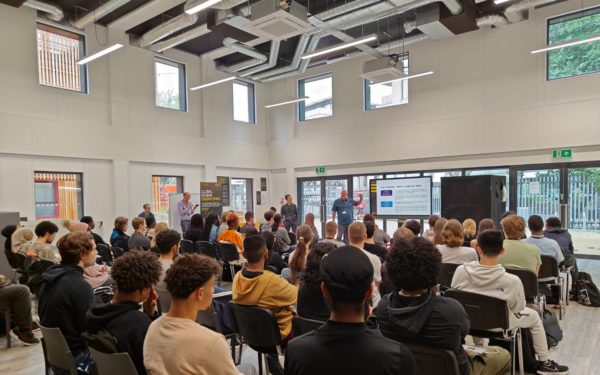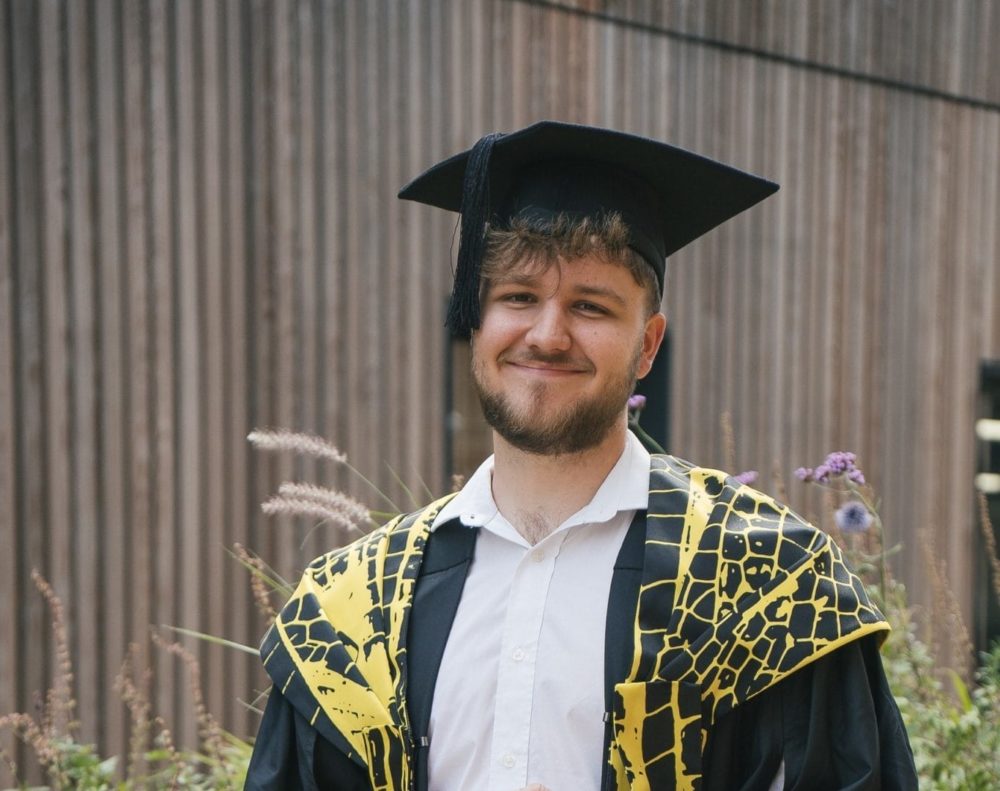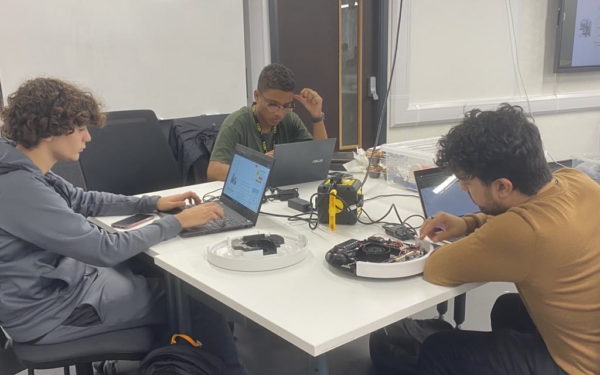
Alumni Story: Connor’s journey into the science of sound

Meet Connor, a TEDI-London graduate now pursuing a Master’s in Acoustical and Vibration Engineering. Passionate about audio and sound physics, Connor shares his journey in advancing his expertise in environmental and electroacoustics since graduation.
Which field of engineering are you focusing on in your master’s studies?
I’m currently studying for an MSc in Acoustical and Vibration Engineering. I chose it because I have always had a deep interest in audio and the physics behind how sound travels through air. Alongside this, I have designed and made many loudspeakers in my own time as I also have a huge interest in the design side of engineering.
In my studies I am specialising in Electroacoustics, where I am involved in the design and optimisation of loudspeaker components. I am also exploring Architectural and Building Acoustics to understand sound travel and noise reduction in buildings, and Active Control of Sound and Vibrations, focusing on both active and passive noise control technologies.
Are there any projects you’ve undertaken so far that have been especially challenging or rewarding?
I am preparing to start my dissertation on designing metamaterials, which are materials that are essentially a 3D structure that can absorb or dampen sound waves or vibrations due to their specific shapes and features. The work I have done for this, and in other modules, has all been very challenging as I have had to adapt from TEDI’s hands-on, practical learning approach to a more standard theory-based learning (which is nowhere near as exciting or interesting!). There is also a lot of very complex maths which requires very good knowledge of either Python or MATLAB. I was lucky enough to have experience with MATLAB from TEDI which has taken some stress off this part of the learning.
What skills or knowledge gained at TEDI-London have helped you most in your MSc so far?
Being able to approach a challenge with a broad perspective, especially one that requires some design work. I have been able to use this in multiple modules but mostly in Electroacoustics where a portion of the assignment was to include considerations for shape, size, materials, cost of manufacturing and justifications for every choice I’d made. All of which I felt confident with from all of the modules at TEDI.
Another very useful set of knowledge from TEDI was work on portfolio development and case studies. Unfortunately, there are not many opportunities for ‘making’ in this course which was definitely my favourite part of TEDI-London, however, I will make sure I can make some prototypes in my research dissertation on the metamaterials.
What is something at TEDI-London that you loved being a part of?
At TEDI, every project felt like I was already making a real impact on people’s lives. Designing things that are specifically made to help or improve the way of life for people felt great. I really enjoyed working with real partners and companies outside of TEDI too, because again it felt like we were already making an impact on the world before we finished the degree. My favourite modules were the Living Lab and Innovation and Entrepreneurship, because I loved how much creative freedom they gave us, and it was exciting to see the result at the end.
Was there a professor here who made a significant impact on your education and growth?
Dr Matt Thompson, who did a great job of teaching even when he was completing his own PhD alongside! He was my project lead for my dissertation project where we had many 1-1 sessions in which he taught me all I needed to know about robotic arms (which I had no prior knowledge whatsoever).
Another professor that made an impact was Joe Steensma, a visiting professor from Washington University in St. Louis. His energy and track record were inspiring and made the Innovation & Entrepreneurship module very fun. He made it clear that understanding your customer/audience is one of the most important things for trying to sell your products. I have aims to start my own business in the near future and this advice has proven to be very essential for me.
What’s your advice to other aspiring engineers considering TEDI-London?
TEDI is an amazing, unique and exciting way of learning and one piece of advice I would give to anyone considering it would be to not be afraid to share your ideas – no matter how silly they might be. Working in groups can be spooky and it can be easy to just follow along and accept how the work flows, but this is no fun. Challenging the group’s ideas and thinking outside of the box opens the scope to some wild and crazy ideas but also leads to some groundbreaking solutions that you would never have reached if the whole group gave little creative input.
If you could engineer your perfect day, what would it look like?
It would start off with a lay-in and a huge breakfast. I would be getting prototypes of designs started on a 3D printer and making more CAD models while I wait for the prints. I would be in the workshop in between modelling and printing to use all kinds of machines to cut, drill and test materials (I would find an excuse to cut wood on a laser cutter as this is my one of my top 5 smells ever). Once the prototypes have finished printing, I would then be sanding and priming them to be painted to get a good feel for how they will look like a finished product.
I would then stop for lunch, maybe a nice soup and fresh bread to dip and then get back to designing internal components for my prototypes up until the end of the day. If I ever find time in the day between all of this, I will definitely have a visit to a shop or factory to have a look at how other companies make/design their products as I always love a site visit.
What technology or gadget do you wish existed that could revolutionise your life?
As someone who can’t go a day without music, I dream of a device that always knows exactly what I want to listen to, saving me from endlessly skipping songs or switching playlists. It could read your brain activity somehow and know what songs you respond well to when you are in different moods, at different times of the day or even different locations. For example, it will know that you are at the gym and automatically play music through your headphones that gets you pumped, or you are sitting in the sun at the park, and it knows to play something a bit slower and chilled.
Want to read more from our alumni? Have a look at Natasha’s story.
More News articles

Becoming a Dementia Friend
